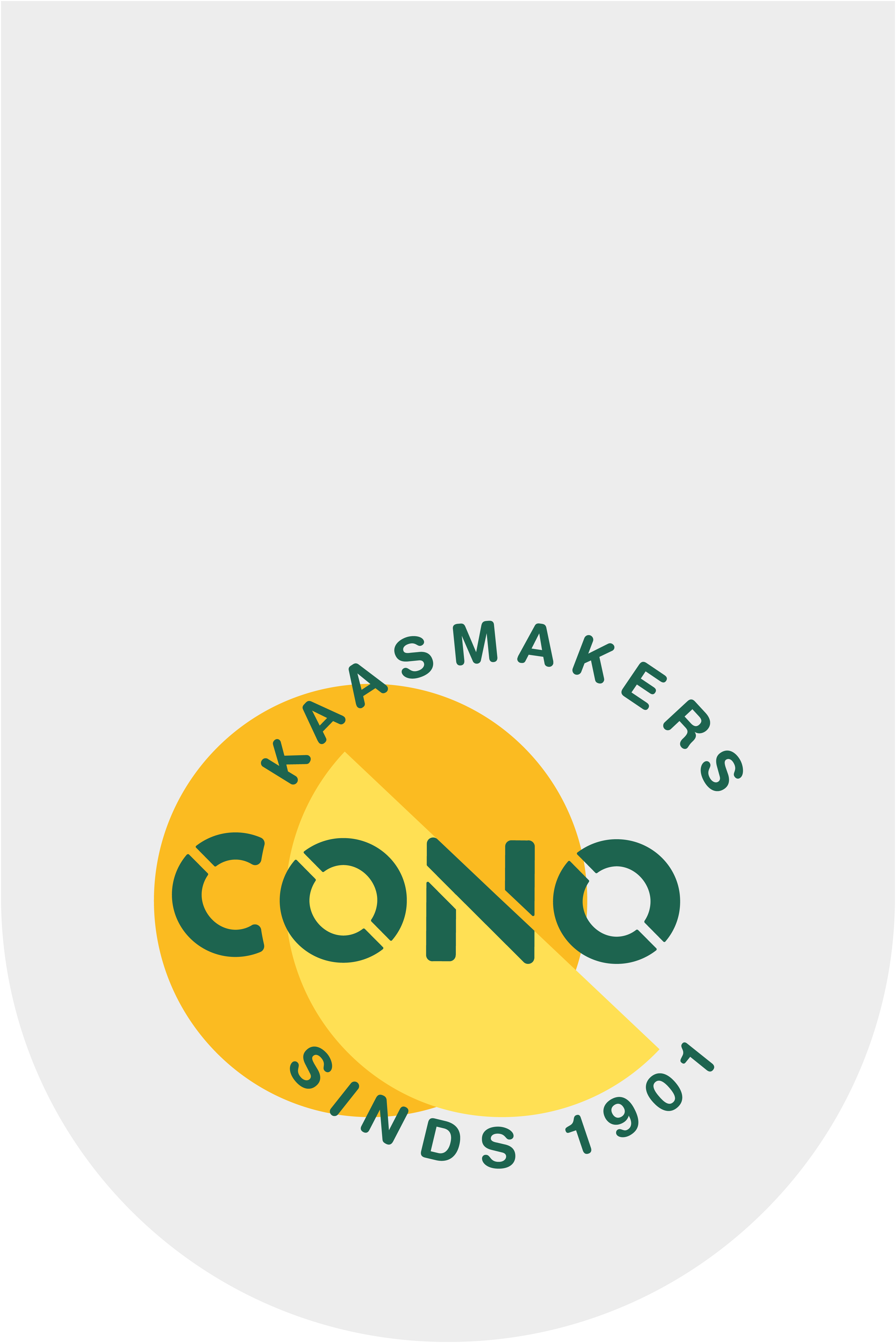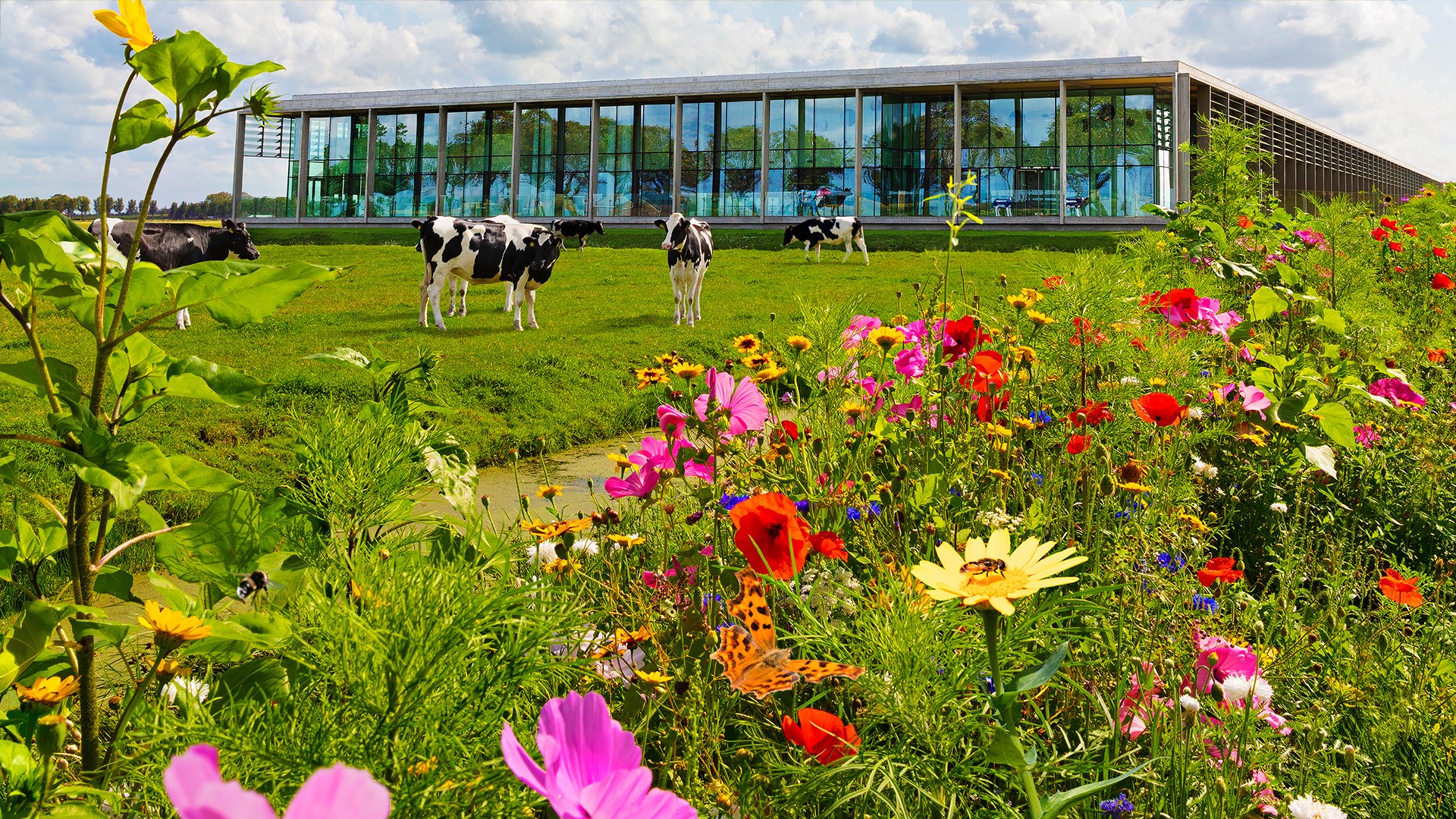Read the article in English on the Duynie Feed website.
Duynie Feed has been working for years to increase the proportion of circular by-product streams in animal feed. By-product streams not only bring financial benefits to farmers, but also increase the sustainable character of the dairy chain. They contribute to closing cycles and reducing greenhouse gas emissions, expressed as CO2 equivalents (CO2-eq). Two years ago, CONO Cheese Makers saw this as a reason to start discussions. CONO wanted to investigate whether feeding by-products and/or regional residue streams could contribute to CONO Kaasmakers' ambitions, thereby improving climate impact, circularity and its own roughage production. CONO Kaasmakers and Duynie Feed started a joint project to investigate this. In cooperation with Koenis, a feed supplier, PPP-Agro advies, Ben & Jerry's and nine dairy farmers, they started the practical trial in 2022. This project aims to investigate the possibilities of reducing the use of concentrate in the ration, while maintaining the same milk production.
Peter Vriend, Sustainability Coordinator at CONO Kaasmakers, and Nicole Timmerman, Business Developer Circular Agrifood at Duynie Group, look back on this collaboration and look ahead.
Sustainability and the farmer central
The project began by defining concrete goals and conditions. From the beginning, it was established that sustainability and practicality for the farmer were central. The ration should effectively reduce CO2-eq emissions, be circular, technically sound, cost-effective and feasible for farmers.
We invited CONO Kaasmakers dairy farmers to participate in a practical trial with the aim of measuring the expected CO2-eq reduction in practice by replacing concentrates with co-products. In the summer of 2022, we started this trial with nine enthusiastic dairy farmers. We used the KringloopWijzer to measure and monitor during the project. We also made sure all conditions were met and provided the dairy farmers with what they needed, such as a silo, to get started. Then we were able to proceed with the initial ration calculations and pilot for the winter season.
10% CO2 reduction with side streams in rations
In early 2023, we evaluated the results of the field trial. The central research question was, "Does a ration consisting mainly of grass and co-products have a positive effect on CO2-eq reduction, cost-effectiveness and milk production? The initial results of the field trial are promising. Feed costs were reduced, while a positive climate effect was measured. As a result of ration adjustments, feed-related CO2-eq emissions were reduced by as much as 10%. An additional positive effect was the increase in milk production by replacing concentrate feed with products such as brewer's grains, citrus pulp and potato fiber. The favorable prices of co-products and residues also helped reduce ration costs.
We are aware that each farm operates differently and the effects vary from farm to farm. For one of the farms, the reduction in CO2-eq emissions was only 4%. We wondered if this reduction was significant enough to continue the project, given CONO Cheese Makers' and Ben & Jerry's ambitious goal of reducing greenhouse gas impacts by 50% at the farm level. The unanimous answer is yes, because any reduction, regardless of size, contributes to our overall goal. The most important thing is to provide our farmers with the tools to manage their CO2-eq impact according to their individual operations. This gave us enough reason to continue with the field trial of the 2023 summer ration. Our ambition is to turn it into an ongoing educational project.
"The biggest impact we've had with this project is inspiring farmers to start with grass in the ration, supplement it with co-products and/or regional residues, and only then think about concentrate feed." - Peter Vriend, Sustainability Coordinator at CONO.
The power of chain collaboration Through this project, initiators Duynie Feed and CONO Kaasmakers gained new insights into the role of circular by-products in achieving the sustainability goals of CONO Kaasmakers, Ben & Jerry's and the dairy chain. By promoting more of these chain initiatives, we are gathering practical knowledge and creating more best practices. This will enable us to provide more targeted advice to dairy farmers in the transition to a future-oriented dairy chain that minimizes land use and CO2-eq emissions.
To learn more about the experiences of participating farmers in this pilot, read the interview with Christina Kranenburg.

